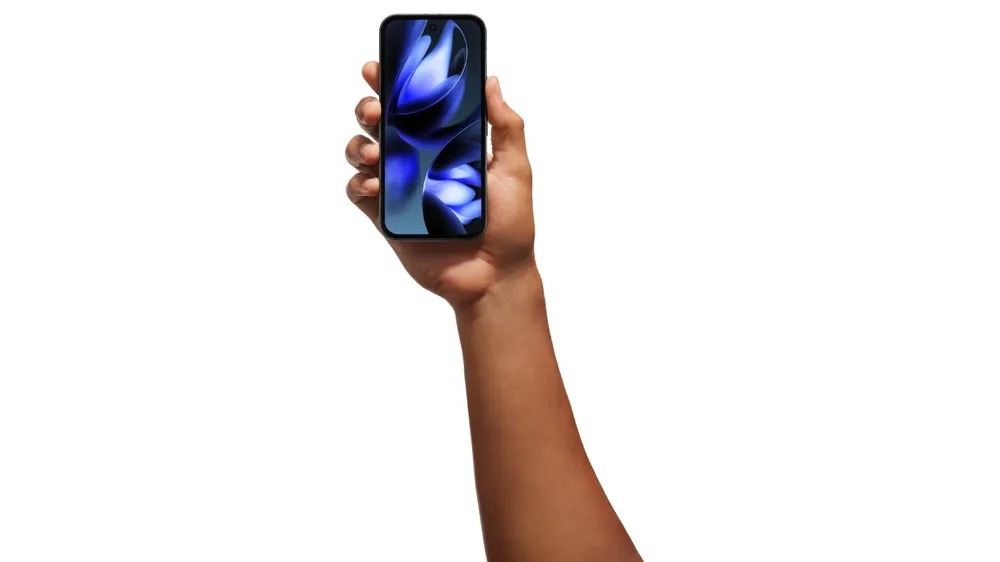MacBook Pro (16-inch) vs MacBook Pro (15-inch): How does the new model fare?
How does Apple's new 16-inch MacBook Pro compare to the previous 15-inch model? We put these two powerful laptops against each other.
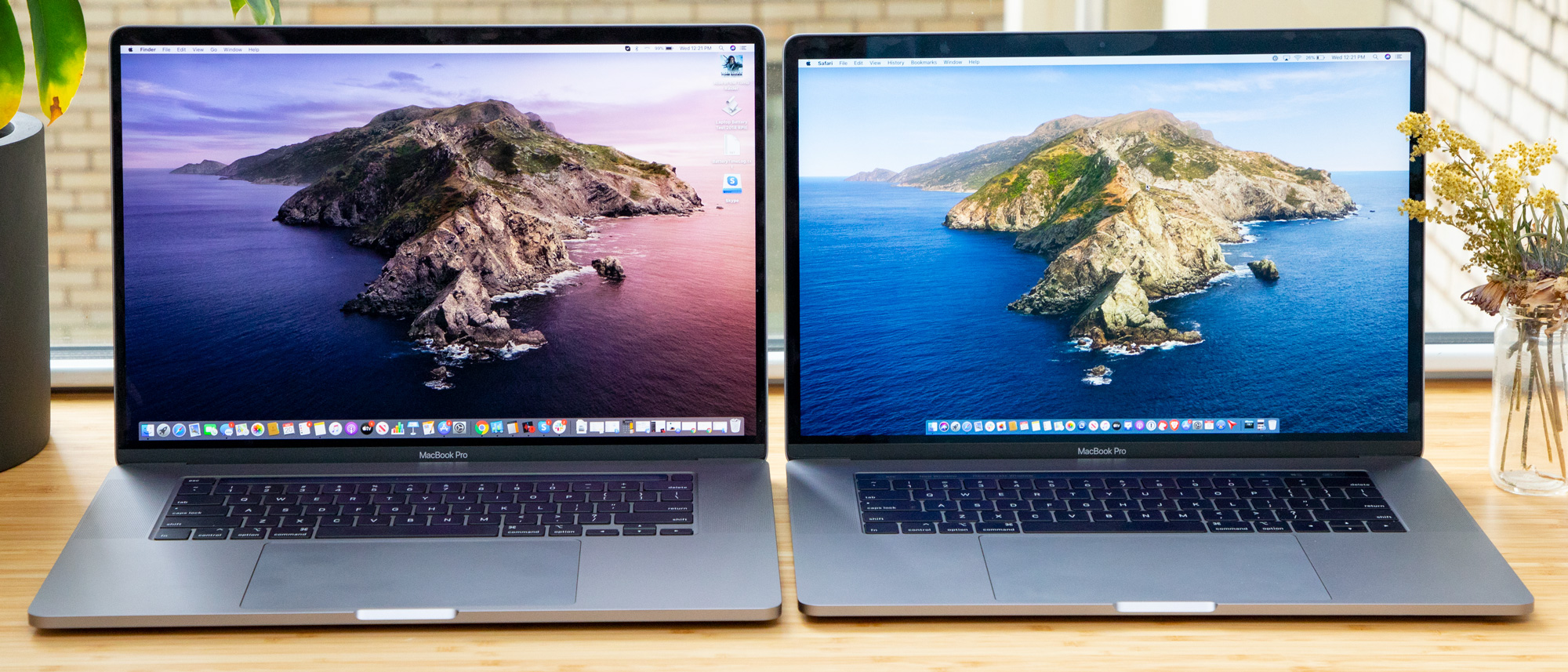
Goodbye 15-inch MacBook Pro, all hail the new 16-inch model. Apple replaced its longstanding flagship laptop with a larger, 16-inch MacBook Pro that ditches the troubled Butterfly keyboard for a traditional scissor style. The new keyboard is a much-needed improvement, but just one of several changes debuting on the new laptop.
If you're in the market for a powerful machine or already own the 15-inch MacBook Pro, then you might be curious about the new model. We've put the 16-inch MacBook Pro up against the 15-inch model (still sold by some retailers) to help you decide which MacBook Pro is right for you.
16-inch MacBook Pro vs 15-inch MacBook Pro: Specs Compared
| Header Cell - Column 0 | 16-inch MacBook Pro | 15-inch MacBook Pro |
|---|---|---|
| Price (as reviewed) | $2,299 ($3,899) | $2,399 ($6,549) |
| Display | 2072 x 1920 px | 2880 x 1800 px |
| CPU | 9th gen Core i7, 9th Gen Core i9 | 9th gen Core i7, Core i9 |
| RAM | 32GB (up to 64GB) | 32GB (up to 64GB) |
| SSD | 1TB (up to 8TB) | 4TB (up to 8TB) |
| Ports | 4 Thunderbolt 3; headphone jack | 4 Thunderbolt 3; headphone jack |
| Battery Life (hrs:min) | 10:55 | 10:21 |
| Geekbench | 7,250 | 7,186 |
| Size | 14.1 x 9.7 x 0.6 inches | 13.8 x 9.5 x 0.6 inches |
| Weight | 4.3 pounds | 4 pounds |
Design
You need to squint to see the subtle differences between the 16-inch MacBook Pro and its smaller predecessor. Apple essentially stretched the 15-inch model and made a few minor but welcome adjustments to the inside.
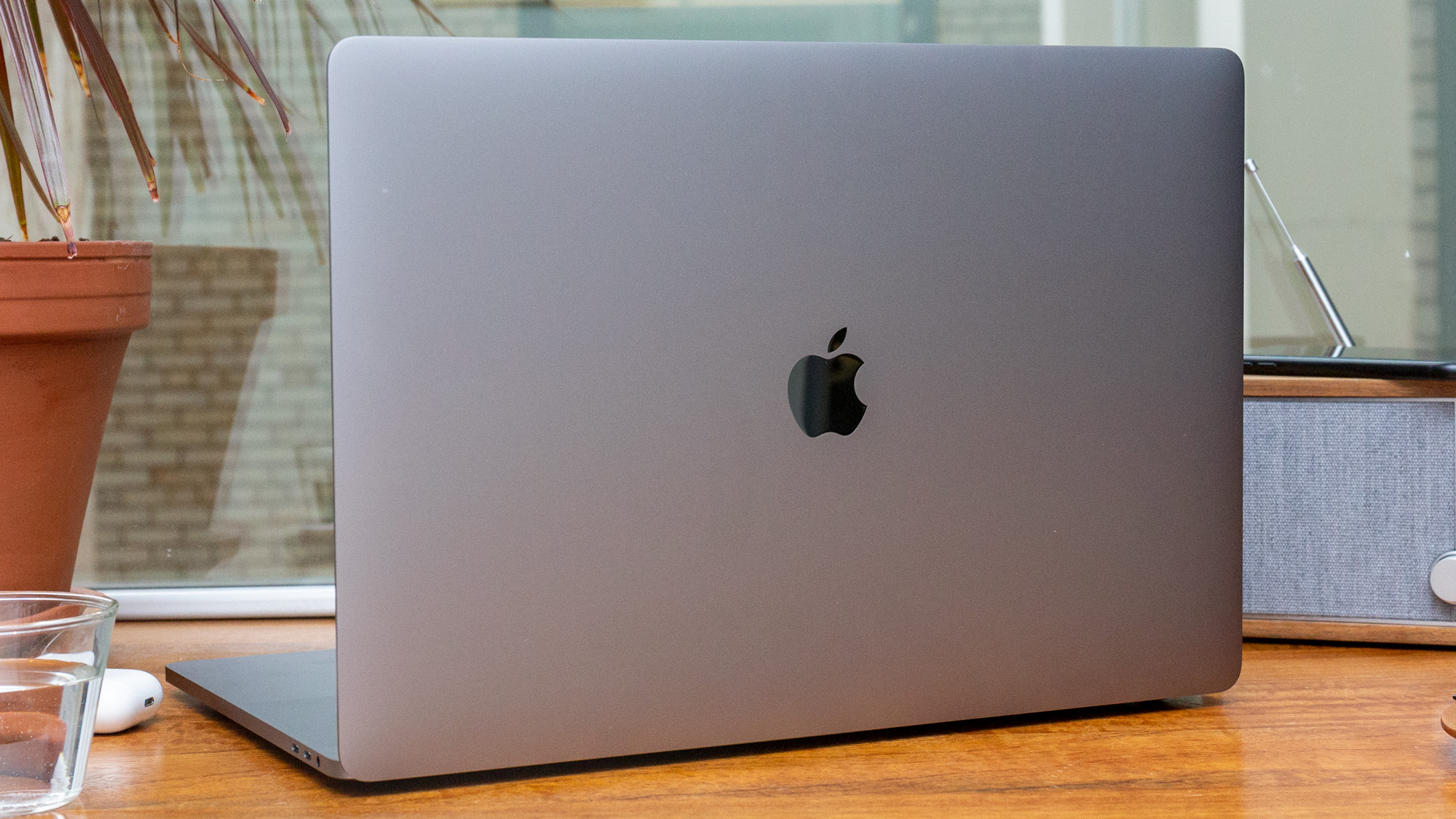
The most notable improvement is the new MacBook Pro's thinner bezels, which draw your eyes toward its expansive 16-inch display.
The design of these two laptops is otherwise identical. Both MacBook Pros have a unibody aluminum frame with rounded corners and a notch cut from the deck so you can easily open the lid. Stamped on the center of the lid is a chrome Apple logo.
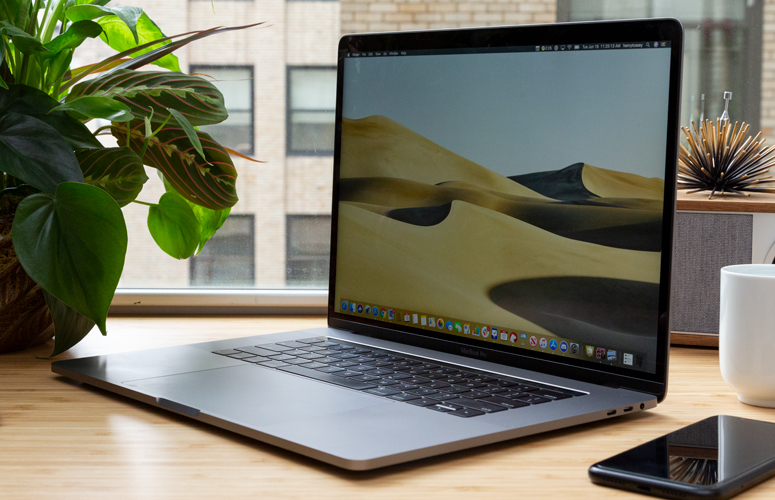
Lift the lid of either MacBook Pro and you'll be struck by a gigantic touchpad stretching across almost a third of the deck. Just above is a black keyboard with an OLED Touch Bar in lieu of a function key row. Apple took people's complaints with the divisive feature to heart and created discrete Esc and power/Touch ID keys.
At 14.1 x 9.7 x 0.6 inches and 4.3 pounds, the 16-inch MacBook Pro is unsurprisingly larger and heavier than the 15-inch MacBook Pro, which weighs 4 pounds and measures 13.8 x 9.5 x 0.6 inches.
Stay in the know with Laptop Mag
Get our in-depth reviews, helpful tips, great deals, and the biggest news stories delivered to your inbox.
Despite being less portable, the 16-inch MacBook Pro wins this round for its improved Touch Bar and thinner display bezels.
Winner: MacBook Pro (16-inch)
Ports
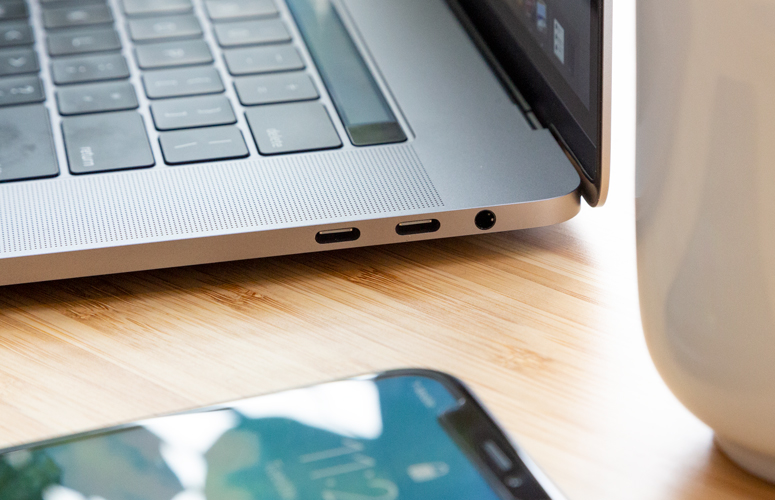
The 16-inch MacBook Pro has the same inputs as the 15-inch model: four Thunderbolt 3 ports --- a pair on each side --- and a headphone jack. That means no USB-A input or SD card reader, so prepare yourself for the dongle life.
Winner: Draw
Display
Apple clearly cares a lot about uniformity. Disregarding the extra real estate, the new MacBook Pro's 16-inch, 3072 x 1920-pixel Retina display is practically indistinguishable from the 15-inch, 2880 x 1880-pixel resolution panel of its predecessor. That's a good thing because both are sharp, bright and very colorful.
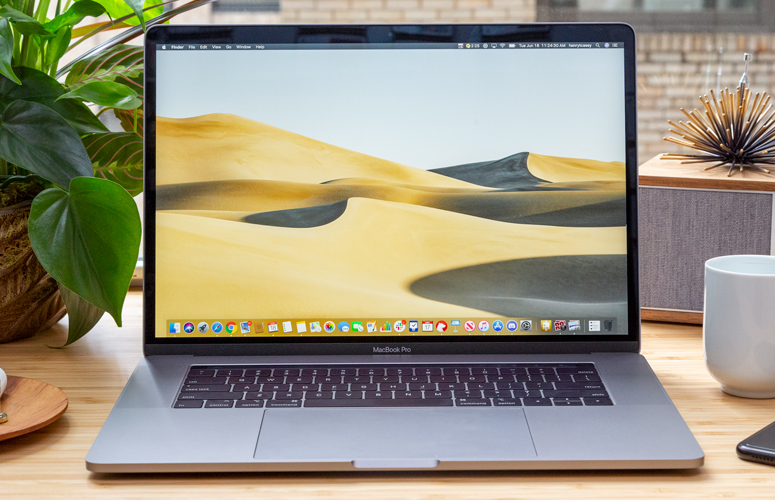
It's staggering how similar these two panels are. The aqua blue and pumpkin orange on the feathers of an exotic bird were the same vivid tone on both panels when I watched a trailer for Doolittle. I could see just as much detail in Robert Downey Jr's basketweave-patterned jacket on the 16-inch MacBook Pro as on its predecessor, and didn't notice any difference in white balance when browsing the web. Still, I felt more immersed in the trailer on the new MacBook Pro because of its larger screen and slimmer bezels.
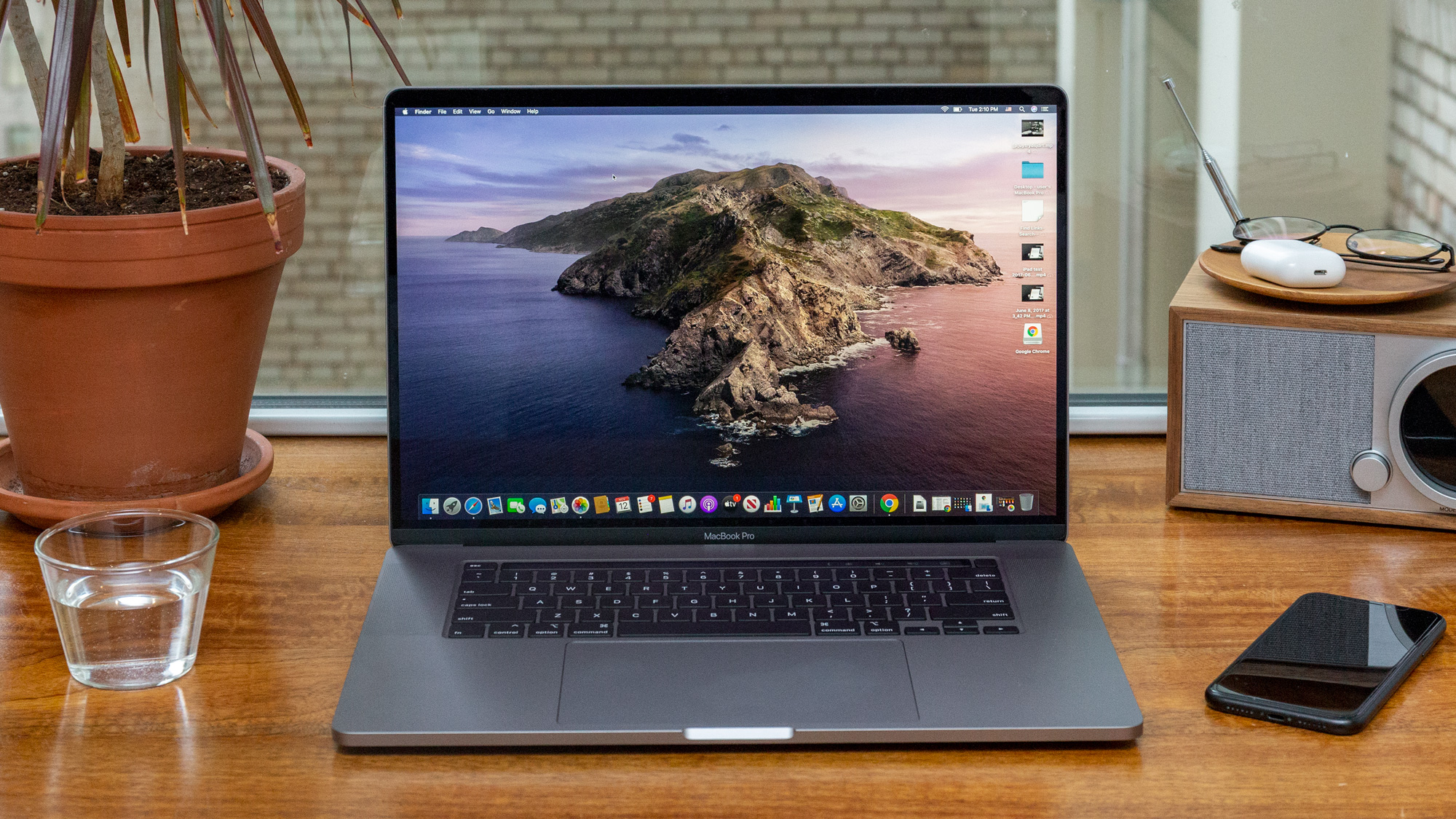
Our testing equipment quantifies how alike these two displays are. Our colorimeter found them both capable of covering 114% of the sRGB color gamut. Although plenty vivid, that's well below the workstation average (155%).
The 16-inch MacBook Pro's display reaches 429 nits, which is a bit brighter than the 15-inch panel (403 nits). This time, both panels outshine the workstation average (366 nits).
Winner: 16-inch MacBook Pro
Keyboard and touchpad
With an improved layout, more comfortable keys and (hopefully) reliable switches, the 16-inch MacBook Pro's scissor keyboard is a major improvement over its predecessor's maligned Butterfly keyboard.
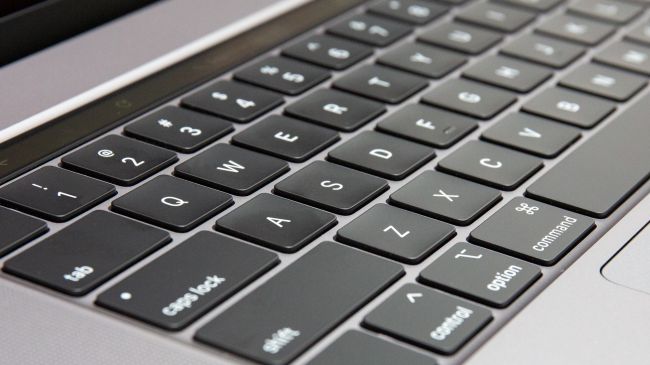
Ignoring well-documented reliability issues, the old MacBook Pro's Butterfly keys are stiff and, because they have such low travel, my fingers frequently bottomed-out, or slammed against the laptop's hard base with force.
The 16-inch MacBook Pro's traditional scissor keyboard fixes those problems. I instantly appreciated the extra travel and softer actuation when I started typing. You get all the extra comfort without losing the satisfying click of the old keyboard. Oh, and the new version is also quieter.
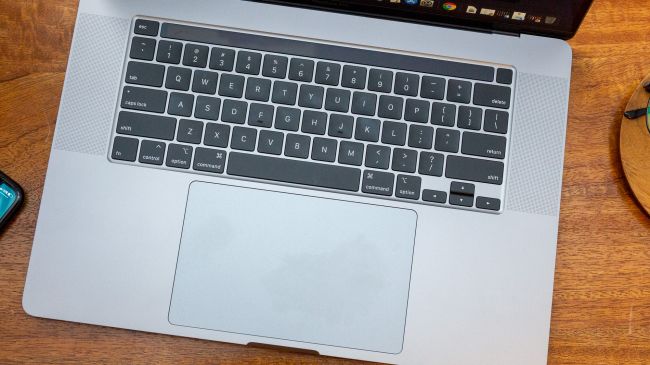
Even the layout is better; The 16-inch MacBook Pro has an inverted T arrow key layout so you can find those keys more easily.
Most importantly, the new keyboard, which is essentially the one Apple used before introducing the Butterfly switch, promises to be more reliable. Apple added a new concave keycap structure and a rubber dome underneath for support. These should prevent any problems people faced with the Butterfly keyboard, which was so unreliable that Apple had to offer a free repair service for it.
Using the 16-inch MacBook Pro's scissor keyboard, I typed at 117 words per minute with an accuracy of 94% on the 10fastfingers.com typing test. That's quicker and more accurate than the 113-wpm with a 93% accuracy I typed on the previous version.
As a Windows PC user, I am dumbfounded by the MacBook Pro gigantic trackpad. Not that I'm complaining. The 6.1 x 3.9-inch touchpad, which appears to be identical on both MacBook Pro models, responded quickly to my swipes and gestures. While I prefer actual right-and-left click buttons, the MacBook Pro's Force Touch worked as advertised on both laptops.
Winner: MacBook Pro (16-inch)
Performance
The MacBook Pro is one of the most powerful machines ever. Even last year's model crushes nearly any laptop we could put it up against. The performance gap between the 15-inch and 16-inch MacBook Pros is narrow, but the new model takes the crown.
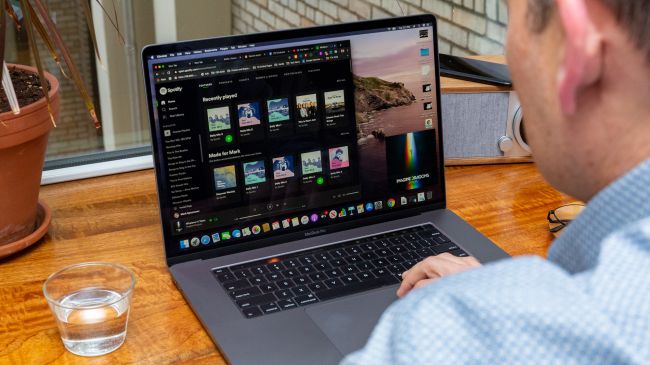
We tested a 16-inch MacBook Pro equipped with a Core i9 CPU, 32GB of RAM, a 2TB SSD and AMD Radeon Pro 5500M graphics with 8GB of video memory. In the other corner, was the 15-inch model with a Core i9-9980HK CPU, 32GB of RAM, a 4TB SSD and Radeon Pro Vega 20 graphics with 4GB of HBM2 memory.
On the Geekbench 5 overall performance test, the 16-inch MacBook Pro edged out its predecessor with a score of 7,250, a few points above the 7,186 from the 15-inch model.
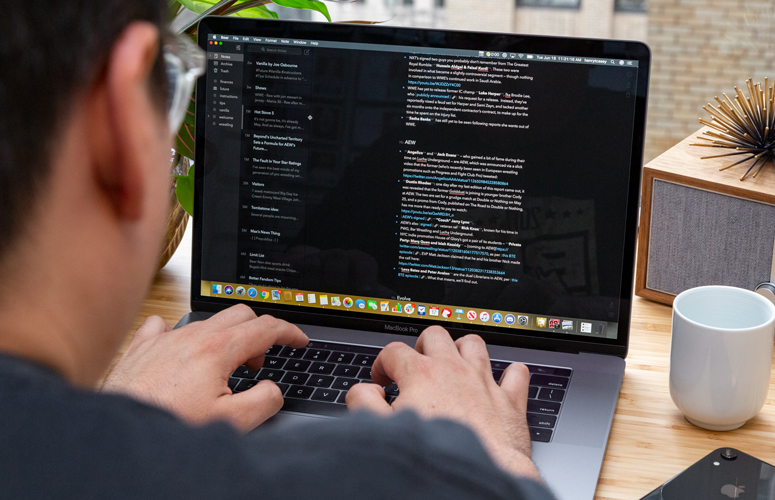
It doesn't matter which model they use, video editors will love the MacBook Pro for its blazing fast transcoding speeds. The 16-inch MacBook needed just 8 minutes flat to convert a 4K video into 1080p resolution whereas the 15-inch version took another 10 seconds to complete the task. Both of those results are minutes faster than the workstation average (10:18).
The older 15-inch MacBook Pro outpaced the new model in our SSD test, but consumers are the real winners with these insane speeds. The 2TB SSD inside the 16-inch MacBook Pro nabbed a write speed of 2,224 MBps and a read speed of 2,116 MBps on the Blackmagic Disk Speed Test. That blistering pace is just a step behind the 2,610 MBps write speed and 2,612 MBps read speed of the 15-inch MacBook Pro's 4TB SSD.
While it has a discrete graphics card, we don't consider the MacBook Pro a gaming laptop. Still, it can play the few macOS-supported games as long as you don't crank up the graphics settings too high. Rise of the Tomb Raider ran at 27 frames per second on the 16-inch MacBook Pro and 26 fps on the 15-inch model. Unfortunately, that's a few frames below our 30-fps playability threshold.
Winner: 16-inch MacBook Pro
Audio
Apple didn't need to make the MacBook Pro's speakers better. It did anyway. The 16-inch MacBook Pro has a six-speaker setup that produces crisp, lush treble and mids and deep bass. They aren't perceivably louder than before, but they sound cleaner than those on the 15-inch MacBook Pro.
Phoebe's Bridgers' soft voice was clearer and more detailed on the 16-inch MacBook Pro when I listened to "Motion Sickness" on both laptops. The song played loud enough from both laptops to fill a medium-sized room but the 16-inch model did a better job separating instruments and low tones, like the slam of drums, punched harder. The 15-inch model's quad speakers were almost as good sonically but sounded more hollow and unrefined.
Winner: 16-inch MacBook Pro
Battery Life
With a 100-watt-hour battery (16 additional watt hours than the 15-inch model) offsetting a large, power-hungry display, the 16-inch MacBook Pro lasted for 10 hours and 55 minutes on the Laptop Mag Battery Test, which involves continuous web surfing at 150 nits of screen brightness.
In comparison, the 15-inch MacBook powered down after 10 hours and 21 minutes, or about a half hour before the new model. Both of those results are well above the category average (6:09).
Winner: MacBook Pro (16-inch)
Value and Price
Buying a MacBook Pro means spending a lot of money. The 16-inch MacBook Pro starts at $2,399 for the base model with a Core i7 CPU, 16GB of RAM, a 512GB SSD and an AMD Radeon 5300M GPU. This replaces the cheapest 15-inch model, which started at the same price but with only 256GB of storage.
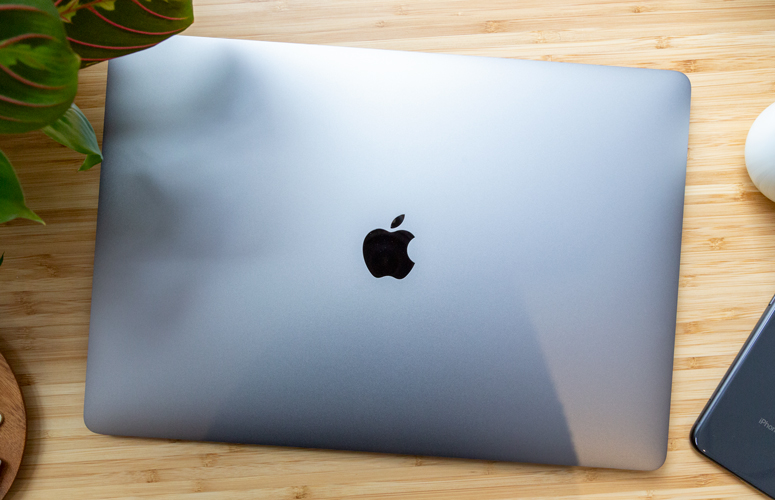
Stepping up to a mid-tier model with a Core i9 CPU, 16GB of RAM, a 1TB SSD and a Radeon Pro 5500M GPU (with 4GB of RAM) will cost you $2,799. At that price, the 15-inch MacBook Pro comes with the same specs but only 512GB of storage and a Radeon Pro 560X GPU.
From there, you can max out the 16-inch MacBook Pro by spending $6,099 on a configuration with a Core i9 CPU, 64GB of RAM, a 8TB SSD and a Radeon Pro 5500M GPU with 8GB of RAM.
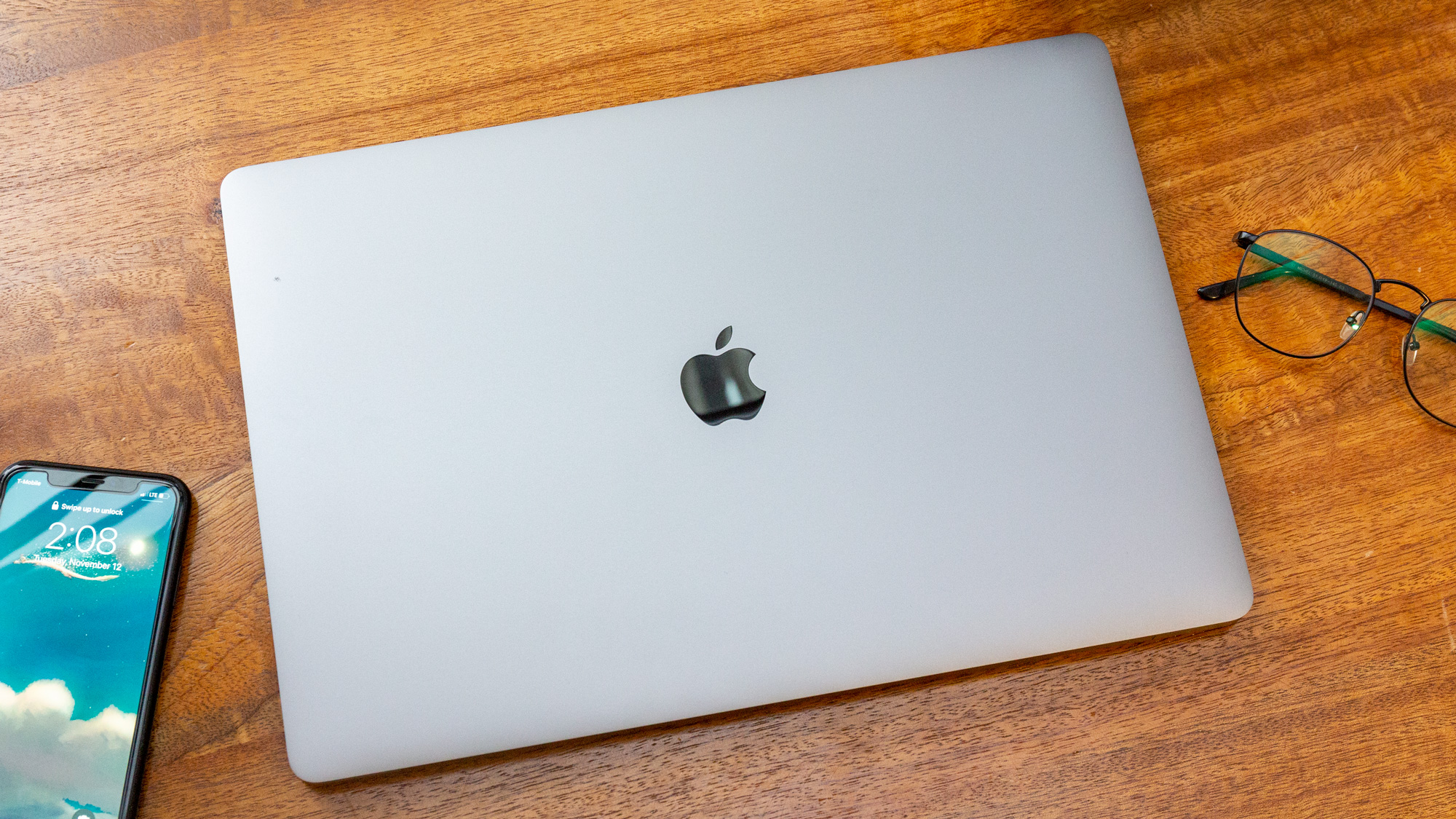
Although the 16-inch MacBook Pro costs about as much as its predecessor, you can find steep discounts on the older model. For example, Best Buy currently sells the base MacBook Pro --- with a Core i7, 16GB of RAM, 512GB SSD and Radeon Pro 555X GPU --- for $2,049.
Upgrading to a Core i9 CPU with a 512GB SSD brings the price up to $2,399. A higher-end model with 32GB of RAM, a 1TB SSD and a Radeon Pro 560X GPU originally costs $3,799 but now goes for $2,999. Because of these deals, the 15-inch MacBook Pro wins this category.
Winner: 15-inch MacBook Pro
Overall Winner: 16-inch MacBook Pro
Well done, Apple. The new 16-inch MacBook Pro is the laptop we've been wanting for years. Its main appeal is a new scissor keyboard that's more comfortable and promises to be more reliable than the one on the 15-inch MacBook Pro.
| Header Cell - Column 0 | 16-inch MacBook Pro | 15-inch MacBook Pro |
|---|---|---|
| Design (10) | 7 | 6 |
| Ports (5) | 2 | 2 |
| Display (15) | 13 | 12 |
| Keyboard/Touchpad (15) | 12 | 10 |
| Performance (20) | 20 | 19 |
| Audio (5) | 5 | 4 |
| Battery Life (20) | 19 | 18 |
| Value (10) | 4 | 5 |
| Overall (100) | 82 | 76 |
That's reason enough to choose the 16-inch model over the 15-inch version. But it's far from the only one. The 16-inch model also has slimmer display bezels, longer battery life and more dynamic speakers, making it the clear winner in this face-off.
That said, if you own the latest 15-inch MacBook Pro then there's no rush to upgrade to the new version (unless you're having keyboard troubles). The older model has a similarly gorgeous display, blazing-fast performance and good battery life. You might even be better off with the 15-inch version if you can find a good deal on one.
But if you just want the very best laptop Apple offers, save up for the 16-inch MacBook Pro.
Phillip Tracy is the assistant managing editor at Laptop Mag where he reviews laptops, phones and other gadgets while covering the latest industry news. After graduating with a journalism degree from the University of Texas at Austin, Phillip became a tech reporter at the Daily Dot. There, he wrote reviews for a range of gadgets and covered everything from social media trends to cybersecurity. Prior to that, he wrote for RCR Wireless News covering 5G and IoT. When he's not tinkering with devices, you can find Phillip playing video games, reading, traveling or watching soccer.

